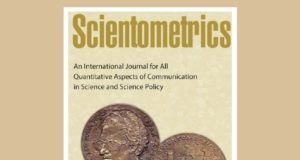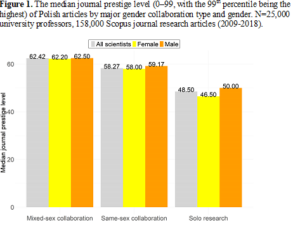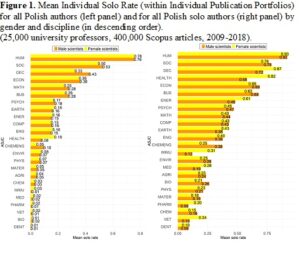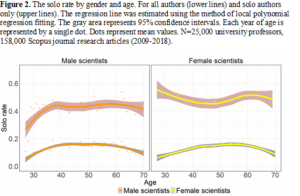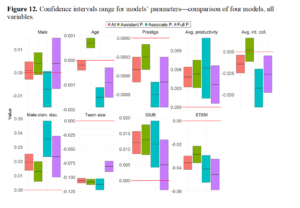A new paper by Marek Kwiek and Wojciech Roszka published in “Scientometrics”!
“Are Female Scientists Less Inclined to Publish Alone? The Gender Solo Research Gap”
Kwiek, M., Roszka, W. Are female scientists less inclined to publish alone? The gender solo research gap. Scientometrics (2022). https://doi.org/10.1007/s11192-022-04308-7, 1-39. Link here.
Abstract
In solo research, scientists compete individually for prestige, sending clear signals about their research ability, avoiding problems in credit allocation, and reducing conflicts about authorship. We examine to what extent male and female scientists differ in their use of solo publishing across various dimensions. This research is the first to comprehensively study the “gender solo research gap” among all internationally visible scientists within a whole national higher education system. We examine the gap through “individual publication portfolios” constructed for each Polish university professor. We use the practical significance/statistical significance difference (based on the effect-size r coefficient) and our analyses indicate that while some gender differences are statistically significant, they have no practical significance. Using a partial effects of fractional logistic regression approach, we estimate the probability of conducting solo research. In none of the models does gender explain the variability of the individual solo publishing rate. The strongest predictor of individual solo publishing rate is the average team size, publishing in STEM fields negatively affects the rate, publishing in male-dominated disciplines positively affects it, and the influence of international collaboration is negative. The gender solo research gap in Poland is much weaker than expected: within a more general trend toward team research and international research, gender differences in solo research are much weaker and less relevant than initially assumed. We use our unique biographical, administrative, publication, and citation database (“Polish Science Observatory”) with metadata on all Polish scientists present in Scopus (N = 25,463) and their 158,743 Scopus-indexed articles published in 2009–2018, including 18,900 solo articles.
